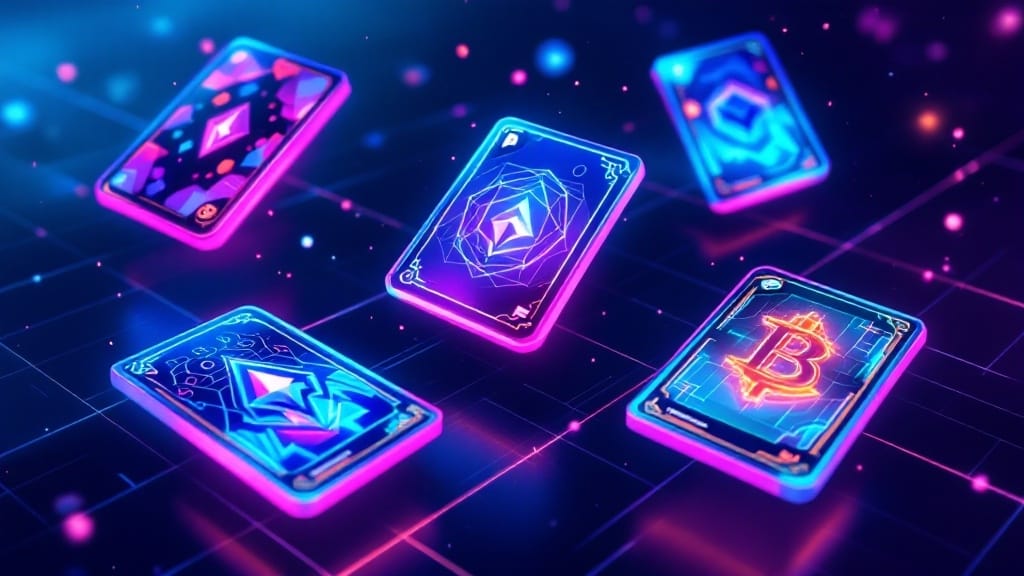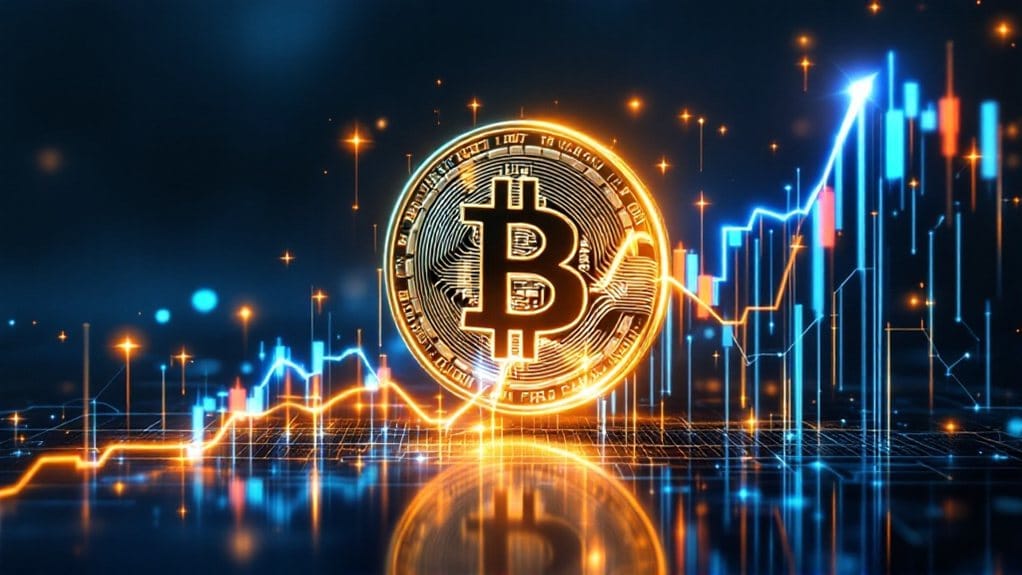Crypto-themed NFT trading cards represent digital collectibles stored on blockchain technology, ensuring verifiable ownership and authenticity through secure transactions. These assets span categories including collectible art pieces like BoredApeYachtClub, gaming cards from platforms such as Axie Infinity, and sports offerings through NBA Top Shot. Trading occurs on specialized marketplaces like OpenSea and Rarible, where value is determined by scarcity, creator reputation, and market demand. The evolving ecosystem continues to introduce innovative features and opportunities for collectors exploring this digital frontier.

The digital transformation in collectibles has ushered in a new era of trading cards through crypto-themed NFTs (Non-Fungible Tokens), which represent unique digital assets stored on blockchain technology. These digital cards offer verifiable ownership and authenticity through blockchain networks, primarily Ethereum and Binance Chain, enabling secure transactions and transparent ownership records that eliminate the risk of counterfeiting or manipulation. The engagement metrics from social platforms and digital marketplaces provide valuable insights into market trends and consumer behavior.
NFT trading cards span numerous categories, including collectible art pieces like BoredApeYachtClub and CryptoPunks, gaming cards utilized in platforms such as Axie Infinity and Gods Unchained, and sports-themed offerings from NBA Top Shot and Sorare. These digital assets often incorporate interactive elements, animations, and exclusive benefits that extend beyond mere collectibility, such as access to private communities or special events. Like the historic Goudey baseball cards that set industry standards in 1933, modern NFT trading cards are establishing new benchmarks for digital collectibles. The implementation of decentralized economies allows players to freely trade and monetize their digital assets across multiple gaming platforms.
NFT trading cards redefine collecting through art, gaming, and sports, offering unique digital experiences and exclusive community access beyond traditional ownership.
Trading occurs primarily through specialized marketplaces like OpenSea, Rarible, and NBA TopShot, where transactions are conducted using cryptocurrency or, increasingly, traditional payment methods. The value of these digital cards is determined by factors including scarcity, creator reputation, and market demand, with blockchain technology ensuring the authenticity and uniqueness of each token.
NFT trading cards present several advantages over their physical counterparts, including immunity to physical deterioration, immediate accessibility, and improved utility through digital features. The blockchain infrastructure provides immutable proof of ownership and authenticity, while the digital nature of these assets enables instant transfers and reduces storage concerns associated with traditional collectibles.
The ecosystem surrounding crypto-themed NFT cards continues to evolve, with platforms developing innovative features to improve user engagement and value proposition. From fantasy sports integration to exclusive membership benefits, these digital assets represent a convergence of collectible trading and blockchain technology.
The market’s growth reflects increasing adoption of digital ownership concepts, with platforms competing to offer unique features and experiences that differentiate their offerings in the expanding NFT landscape.
FAQs
Can I Sell My NFT Cards Across Different Blockchain Platforms?
NFT cards can be sold across different blockchain platforms through specialized marketplaces that support cross-chain functionality.
Platforms like OpenSea and Magic Eden facilitate these transactions using bridge technologies and multi-chain protocols, while ensuring compatibility with diverse token standards like ERC-721.
However, users should consider blockchain-specific transaction fees, security risks, and platform requirements when executing cross-chain trades of their NFT assets.
What Happens to My NFT Cards if the Trading Platform Shuts Down?
NFT cards remain secure on the blockchain regardless of platform closures, as they are tied to the owner’s wallet address rather than the platform itself.
While trading capabilities may cease on the closed platform, collectors can access their assets through alternative marketplaces or store them in hardware wallets.
Users should migrate their NFTs to secure wallets before complete shutdown and stay vigilant against post-closure phishing attempts.
How Do I Protect My NFT Collection From Cyber Theft?
To protect NFT collections from cyber theft, owners should implement multiple security layers: utilizing hardware wallets for cold storage, enabling two-factor authentication on all accounts, and conducting transactions exclusively on verified marketplaces.
Regular security practices include maintaining updated antivirus software, using VPNs for encrypted connections, and backing up critical data.
Moreover, owners should avoid clicking suspicious links and never share private keys or wallet information.
Which Crypto Wallets Are Most Secure for Storing NFT Cards?
Hardware wallets like Ledger Nano X and Trezor Model T provide maximum security through offline storage and secure elements.
For improved protection, MetaMask with hardware wallet integration offers a balance of convenience and security.
Trust Wallet and Exodus maintain robust security through encryption and 2FA while supporting multiple NFT standards.
SafePal S1, with its self-destruct mechanism and air-gapped security, presents another highly secure option for NFT storage.
Are NFT Card Values Affected by Cryptocurrency Market Fluctuations?
NFT card values are considerably influenced by cryptocurrency market fluctuations, primarily due to their pricing and trading being denominated in cryptocurrencies.
When major cryptocurrencies experience price volatility, it directly impacts NFT purchasing power and market liquidity.
Furthermore, market sentiment in the crypto space often carries over to NFT valuations, though specific NFT collections can maintain independent price trajectories based on their unique demand factors and community interest.









